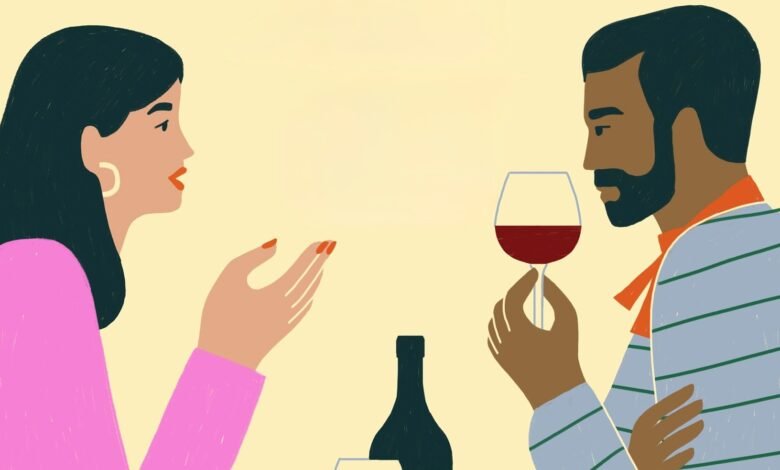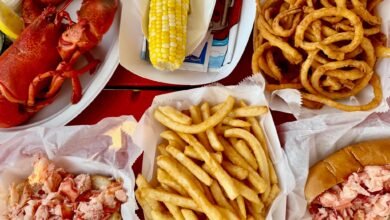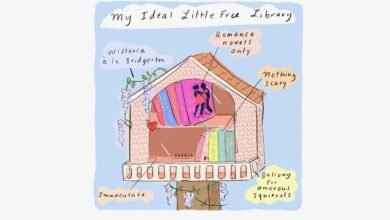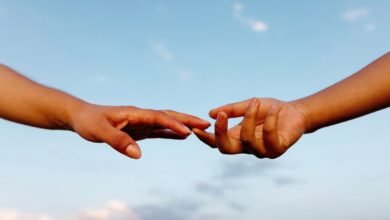

I always call my best friend after a date…
Once, following a dinner date, the guy texted that even though we had a lot in common, he wasn’t interested in seeing me again.
“Why do you think he said that?” my friend asked.
“I can’t be sure, but he made a ‘oh, what, ew’ face when I walked in, so I have an idea.”
“Did he know that you have cerebral palsy?”
“Yes, but that was his first time seeing it.”
“You know, a lot of my friends have bad dating stories,” she said. “Dating is tough for everyone. But dating might be the hardest on you.”
Now, I don’t think I’d win the award for “#1 Dating Survivor,” but seeking romance as someone with a visible physical disability is not easy. Sometimes I wonder if I’ve become hardy enough to persevere alone in the wilderness (I haven’t, I’d last 45 minutes). Societal norms swirl around me, though, and phantoms whisper things like, “Is her body even hot?” or “What can we do for fun other than sit down?” or “Will I have to take care of her all the time?” so that first dates can feel like inadvertently challenging a dude’s perceptions and values just by showing up. Everyone needs to make themselves vulnerable while dating, but for me, the vulnerability begins at hello.
I was curious to know how my peers felt, so I did a dating must: I started a group chat. Below, author and disability rights activist Emily Ladau, writer Rebekah Taussig, and public speaker and founder of Blindish Latina Catarina Rivera share how they dated with disability, and the mindset they had by the time they found their long-term partners.
Kelly: What do you remember about being a disabled kid and having a crush?
Emily: I learned quickly that it’s not ‘cool’ for people to return the crush of someone who has a physical disability. I was always told that dreaded line, ‘We can be friends.’ To be fair, I don’t think I could’ve articulated what that meant as a kid, and I don’t think the boys I liked could’ve, either — but their words had this undercurrent of, ‘I don’t want your stigma attached to me.’ I was never bullied, but it felt like crushing on me was a bridge too far.
Rebekah: I never expressed romantic interests out loud to anyone as a kid. Disability is one reason. It’s a vulnerable thing for anybody to express interest in someone else, and I probably anticipated that I might be unwanted because of my wheelchair. But my romantic history is unusual in that pretty early on I developed a crush on a boy from my church, and he became my first boyfriend, and then my first husband.
Catarina: I wasn’t diagnosed with blindness until I was 17, so as a child I only had hearing aids — and they could be concealed by my hair. I don’t remember being bullied because of my disability, but I do remember being upset when a boy told me I had hairy arms. For me, it was more about feeling like I didn’t match the girls I saw in magazines or movies because I was Latina.
Rebekah: Did you ever watch The Sandlot? I remember thinking, ‘The lifeguard at the pool. That’s the type of girl who is crush-worthy, not me.’
Kelly: As I got older, I became aware of how different I was — I was almost always the only visibly disabled person in any room — and as a young adult, I never acknowledged my cerebral palsy unless I could frame it as a positive. What was it like for you?
Emily: I didn’t want to draw any extra attention to myself, so I decided I couldn’t date someone who was also disabled. But funnily enough, my first serious boyfriend was a wheelchair user, too. I realized that if I didn’t want people to have negative connotations of my disability, then I couldn’t be a hypocrite. There’s also something to be said about being with someone who has a direct insight into your lived experiences. He faced the same stigmas, and that helped me realized that there was nothing wrong with me. That lesson takes so much time to sink in, though.
Catarina: I struggled when I was diagnosed with blindness at 17, because I had to learn about an entirely new disability. It felt very heavy, almost like a secret, because I was so concerned about blending in as a young adult. I did not want to use a cane. I would go to parties in New York City, and then, of course, it was noisy or dark and I would get disoriented. If I went out with friends, and someone asked me to dance, it was easier to keep on dancing so I could postpone looking for my friends.
Kelly: I know the feeling! I once met a guy while sitting at a bar, and we hit it off. But I was scared to stand up and see his reaction. I felt almost like I tricked him. So, I just pretended that it was the most comfortable seat I had ever known, and I couldn’t possibly leave it — even when he did, because the bar eventually closed.
Catarina: It felt like being disabled was unattractive, and something not everyone would accept. I had this arbitrary deadline that I had to find someone before I started using a cane. In my twenty-something mind, I thought that using a cane made me damaged goods.
Rebekah: I developed an attachment to my first husband because I kept thinking, ‘It’s very unlikely that anyone will ever choose me, but if this boy chooses me, then I’ll have a shot at being in a relationship.’ I would literally wish this on a star outside my childhood bedroom. By the time we got married, it felt like going through with it was my only chance. After we got divorced, I was only 23. But with a little more life experience, I started to realize that there were more people who might be interested in me than I’d realized.
Kelly: What was it like to set up a dating app profile? Were you guarded or open with your disability?
Rebekah: I made a profile back when it was so cool to write paragraphs about yourself. I spent so much time answering every prompt. As a disabled person, you preemptively try to put people at ease — it’s so ingrained in us to make others comfortable! I made sure that I showed myself in my chair, too. But then I’d go on these dates and realize they hadn’t looked at all the photos or read what I wrote. I remember one guy who spoke very carefully, and clearly didn’t want to say the wrong thing. And how are you supposed to have a fun date if it feels like you’re on the record?
Emily: It’s one thing to go into a room, where my disability is abundantly clear, and it’s another thing to be online where it’s not. When I first went on the dating apps years ago, I hid my disability. I would drop the bomb after talking for a while, thinking I could charm them enough with my personality that they wouldn’t care. It was a disaster, and I eventually learned to just put it all out there. I got fewer matches, and people unmatched me after they actually looked at my profile. It was a process. But I had to learn that if I wasn’t comfortable being myself, I wouldn’t find the right partner for me.
Kelly: When I meet someone new, and they’re not disabled, my disability might seem like a touchy subject. It’s easy to forget that everyone has sensitive subjects, and it takes time to even things out. What was the difference when you met your current partners?
Catarina: I met my partner at a party, and there were several months between when we met and saw each other again. We wrote back and forth in between. It was a different experience, because there was already a level of trust when we talked about it. I remember that he didn’t react in any big way. He was curious to know more, but he wasn’t intimidated.
Emily: To be honest, I don’t remember a conversation where we talked about my disability. I’m sure it happened, since we met on Hinge, but I have no recollection of those conversations — which I think is a good thing.
Rebekah: I was so delighted by my partner Micah’s messages; he’s a beautiful writer. We wrote back and forth for a while, and he was the one to bring up my disability based on something I wrote to him — so I knew he was reading my words carefully and asking questions about who I was. Not questions like, “Can you have sex?” or “What happened to you?” which I used to get asked a lot. I remember feeling like he saw me as a whole person.
Kelly: Like the disability part was folded in.
Rebekah: Exactly. It was never about him being non-disabled and me being disabled — like this divide. Accepting our bodies as they were from the beginning has made it easier on us as they’ve changed over the years. We’ve built the muscle of adapting in our relationship.
Emily: The thing is, everyone needs support. A good relationship means finding that balance together, whatever that looks like.
Dating is hard. Maybe sparks would fly more freely if disability could be approached lightly — in the same way that you might ask where someone grew up and why they never put olives on pizza. A disability is just another layer to learn about before it’s woven into all the little things that make someone who they are. That’s all anyone wants in a relationship, anyway: The chance to be loved for their whole complicated self.
Kelly Dawson is a writer, editor, and marketing consultant based in Los Angeles. She’s written for Cup of Jo about navigating NYC with a disability and why having a disability can be funny. Shoot your shot with her on Instagram, if you’d like (she’s single!).
P.S. Joanna’s #1 dating rule and 14 great reader comments on dating.
(Illustration by Abbey Lossing.)



